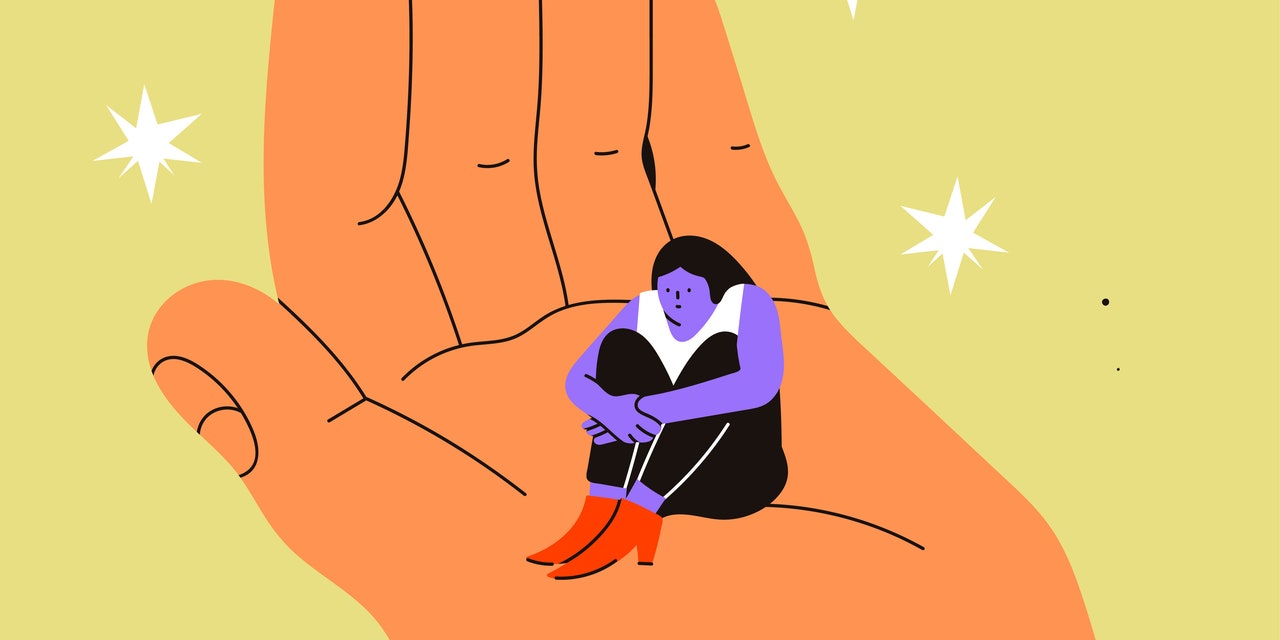Knight also points out that getting help as soon as possible can prevent you from developing a diagnosable condition down the road. “The earlier you start the conversation with a professional about your disordered eating habits or distorted body image, the more likely you are to prevent these things from becoming more severe,” she says. Seeking treatment early on is also associated with a better chance of lasting recovery, she adds.
Working with people trained in eating disorders, whether you have a diagnosis or not, also minimizes the chances that they’ll make your behaviors worse, says Dr. Rugless, who’s the chief clinical officer for Project Heal. Unfortunately, eating disorders aren’t a big part of medical, mental health, or nutrition curriculums, so a provider who hasn’t received additional training could actually cause harm without realizing it by encouraging restrictive eating, for example, or weight loss.
Treatment can take a lot of different forms, from weekly meetings with a therapist and a dietitian to 24/7 care from a team of specialists at a residential facility or hospital. In general, people who are medically stable do well in outpatient treatment, as long as they are able to feed themselves in a healthy way, without supervision or support.
4. Consider joining a support group that connects you to people with similar identities and challenges.
“There are so many misconceptions around eating disorders being a thin, young, cisgender, white woman’s illness,” Knight says. But that’s absolutely not the case. “These behaviors are so prevalent and so underdiagnosed in people outside that narrow stereotype.”
READ RELATED: Is It Okay to Work Out at Night or Does It Affect Your Sleep?
This means that people with marginalized identities could be less likely to recognize disordered eating in themselves and less likely to be diagnosed. It also means that most of the research that informs diagnostic criteria and treatment protocols is built around the stereotypical patient, which can make it tough for people who don’t fit the mold to get support that works for them. Finding providers who share certain key identities with you—like race, body size, sexuality, or gender—can also be a struggle, in part because the eating disorder field is overwhelmingly white and female.
You can try searching the directories listed above for specialists you can relate to—IAEDP’s lets you filter specialists by their ethnicity, for example, if they’ve disclosed it—or you can ask around in your social circle for recommendations. There are also more niche databases that don’t cater specifically to eating disorders but that could be helpful depending on the type of provider you’re looking for, such as Inclusive Therapists, Therapy for Black Girls, and the National Queer & Trans Therapists of Color Network.
Still, the reality is that you might not be able to find someone who has the same lived experience as you, especially if the population in your area isn’t very diverse. This is where virtual support can come in. Project Heal, for example, offers a list of more than 50 virtual eating disorder support groups that cater to specific identities. NAED also has an updated list of online and in-person groups across the country.
5. Remember that as an adult, you get the final say on what recovery from disordered eating means to you.
The conversation around eating disorders and recovery tends to assume that the person struggling is very thin due to their eating disorder, and that gaining weight through recovery will make their life better, even if they can’t yet recognize it.






